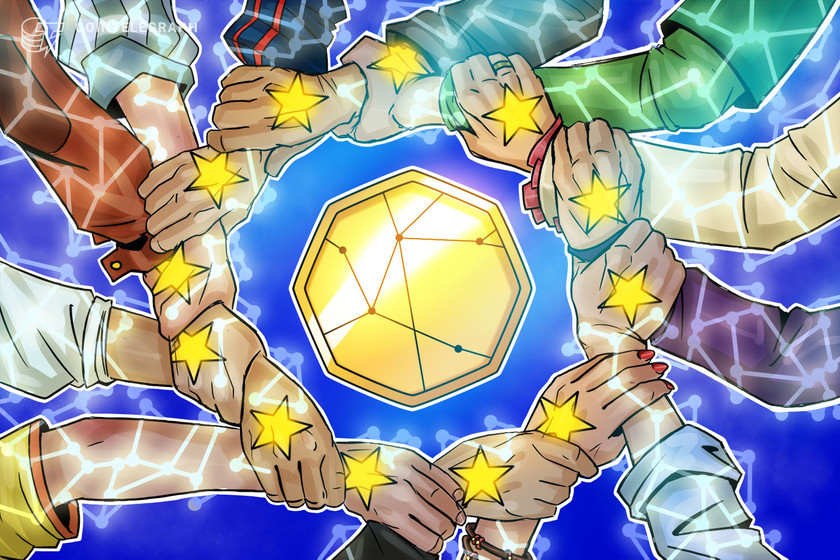Can the launch of Colony v2 relieve DeFi’s governance woes?
Colony, an early Ethereum project aimed at building decentralized governance tooling, announced today that it is preparing for a relaunch that’s been five years, multiple missteps, and a few half-starts in the making.
If successful, however, the new app could be a boon for the dozens of decentralized finance (DeFi) protocols currently struggling with the clumsy mechanics of DAO governance — a nearly universally-acknowledged problem in dire need of a solution.
Almost a half-decade ago, the Colony blog first laid out the organization’s vision for “The Future of Work”:
“By aligning the incentives of the workforce around productivity, people anywhere in the world will be able to build organisations together online without the need for hierarchical management.”
This vision led to a 2017 whitepaper, and then an unsuccessful initial product launch — one that even the company acknowledges was a failure, calling the early app a “as pleasant a user experience as root canal surgery, and not as useful.”
In a blog post today, the Colony Foundation revealed a new app with a host of features that address many of the challenges both DAO participants and investors frequently grumble over: cumbersome voting mechanics, a lack of flexibility, and ossification of power. The relaunch is currently scheduled for February 15th on the Ethereum and xDAI chains.
According to Colony cofounder Jack du Rose, the new launch better reflects the vision set out in the whitepaper — and, even before that, some of the foundational philosophy that won Colony spots on early conference mainstages and hackathon prizes.
“Colony gets its name from ant colonies — complex adaptive systems where you’ve got simple sets of rules that together, in combination, result in sophisticated, emergent behavior from a group as a whole,” he said.
Simple rules and complex behavior — perhaps exactly what DeFi needs right now.
Unruly governance
DAO zealots would have you believe that decentralized governance is the inevitable future of how human organizations compose and advance themselves: open, permissionless innovation and bottom-up worker-owner structures, they argue, will inevitably outcompete centralized entities in the end.
However, the current reality is that DAO structures are nowhere near adding value to an organization.
“The trouble that we’re seeing with DAOs as they stand right now is that they do not decrease the transaction costs of the market mechanism for labor. They certainly don’t decrease the coordination costs, they increase it because they require everything to have this ludicrous decision-making mechanism around them,” said du Rose.
Voting on protocol upgrades has long been a target for critics and a pain point for projects, requiring tedious yes/no votes on simple protocol changes. As such, one of Colony’s key features will be “lazy consensus” — a protocol-level assumption that many key decisions are made at the social layer of a DAO, and that votes are only necessary when a member objects.
Similarly, critics have called into question to what degree DAOs truly live up to their “decentralized” label: many of the largest and most successful maintain high token concentrations on the founding team.
Not only does it ossify power in the hands of a few (in many ways the opposite of what DAO governance seeks to achieve), this centralization makes hiring more difficult, as newcomers might feel as if they don’t have a fair shot to make their voices heard and earn a stake in the success of the venture.
To this end, Colony deploys a variety of tools to prevent an “aristocracy of influence.”
“Reputation decays over time, which means that the Reputation everyone has in the organization will normalize over time to fairly reflect the value of their recent efforts.” says du Rose.
Newcomers can gradually earn”Reputation” in dedicated subgroups, such as “Marketing” or “Product”, every time they get paid in the colony’s native token, which in turn confers ability to stake and vote on proposals as well.
Du Rose says this balances the ability to attract new talent and elevate their voices, while also properly rewarding founders.
“They showed the initiative to back something when it was promising in its very early stages, but that doesn’t mean they should have all the influence, because it very well could be that the best people come along when it’s built a head of steam,” he said of reputational decay. “Those people should be able to earn the say within the organization that they deserve.”
From DAO to DAO
While DeFi protocols are the most obvious initial product-market fit, du Rose envisions centralized entities deploying Colony as well.
“You can go from DAO to DAO — Dictatorial Autocratic Organization to Decentralized Autonomous Organization,” he jokes.
As he sees it, many organizations inevitably start out as a dictatorship/a one-man startup, and eventually shift to more flat power hierarchies out of necessity.
“All organizations can benefit from being more automated, and from the decision authority being pushed out to the edges of the organization such that the people who are doing the work actually have the latitude to just go on and do it without so much management overhead.”
What truly excites du Rose, however, is the sci-fi potential inherent in DAO organizations. He smiled as he described a possible future where NFT-based games mean 15 year-olds are entrepreneurs, creating and distributing digital value to guild members via a DAO.
“You could end up seeing guilds that are unicorn-sized that are entirely virtual.”
The future of work is ultimately difficult to predict, however, as emergent systems lead to new and emergent behaviors.
“A really interesting interoperation and composability that starts to emerge between protocols, governance protocols, and the people doing the governance of them that’s just going to become really deeply interlinked, and will result in some really interesting behavior of the complex system that is the Ethereum ecosystem.”








